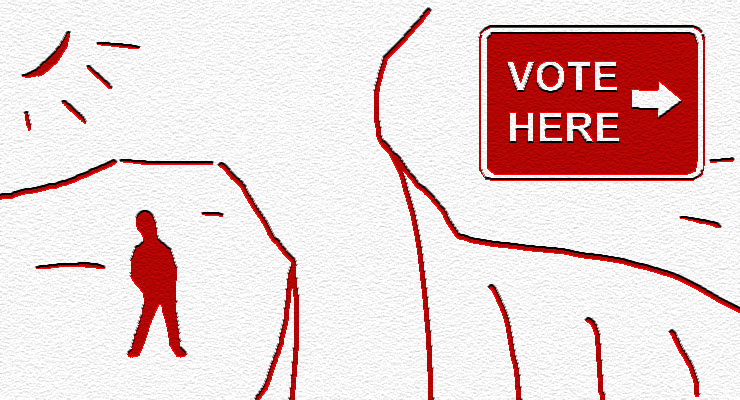
The are various types of barriers facing voters including photo ID requirements, voting booth availability, the flexibility of poll hours, and the availability of time off from work with pay for voting. Some states even have financial penalties for the violation of deadlines or rules related to registration lists. Online voter registration, absentee voting, and early voting are some policies that clearly are shown to ease voting. The latest news on this front comes from a really interesting article from the Pew by Rick Bowmer:
Around the country, state efforts to widen ballot access and Trump-era political passion spurred more voters to the polls in November than the last midterm elections in 2014. Nationally, 53% of the citizen voting-age population voted in 2018, a 12-point bump from the previous midterms, according to new U.S. Census Bureau estimates.
The increases ranged from 21 points in Utah, where about 58% of voting-age citizens voted, down to Colorado, where there was little change. Turnout already was high in Colorado at 59%, partly because the state was a pioneer in expanding ballot access.
See the full story here. Some interesting related research was published in the Election Law Journal where authors Quan Li, Michael J. Pomante II, and Scot Schraufnagel outline an innovative voting index system in their report titled “Cost of Voting in the American States”. The index helps reveal amazing data on how voting barriers vary by state.
According to the index’s findings for 2016, “voting was most difficult in Mississippi and… voting was easiest in Oregon, which was the only state to make use of automatic voter registration in 2016”. The poor state of Mississippi’s democracy should be a surprise to no one. Mississippi has no online voter registration system, no same-day voter registration, and no early voting. Photo ID is required. As a result of state voting laws, this year “little more than 13 percent of Mississippi’s registered voters (245,100 people) cast ballots in the June Republican and Democratic primaries”.
Leave a Reply